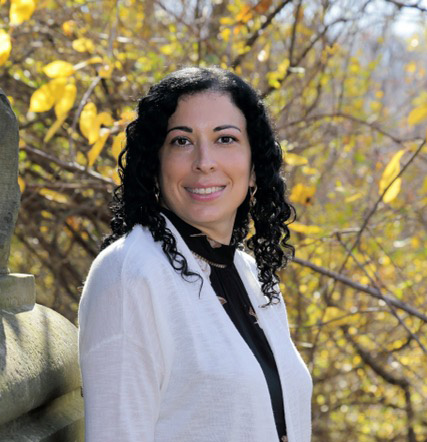Why I Have a Problem With the Term ‘Natural Pregnancy’

I was reminded of the power of words recently during a very mundane moment. I was stirring my coffee, bleary-eyed and barely awake when the empty Stevia packet that was lying on my kitchen counter caught my attention.
ALL NATURAL. These two words, written in caps were screaming at me to notice them.
The word natural is a very common one, appearing on things that surround us every day, like our cartons of orange juice or jars of peanut butter. With it, comes a very positive connotation—thoughts of lush forests and sparkling streams.
It’s also a word that’s frequently used in the realm of pregnancy and childbirth.
“Did you deliver naturally or by C-section?”
“Did you get an epidural or go natural?”
Most of us use it without batting an eye. But there are some contexts in which the word natural or rather its opposites—artificial, synthetic, fake—can leave quite a sting. To women like myself who conceived with medical assistance, referring to a pregnancy as natural implies that one that was achieved with help is somehow abnormal or inferior.
So much so that even celebrities like Jay-Z in his song 4:44, or Lady Antebellum singer Hillary Scott, makes sure the world knows that despite previous miscarriages, their twins were conceived naturally. Who wouldn’t want to advertise to the world that their children were conceived after a night of passionate love-making rather than with the help of a doctor wearing a white lab coat and wielding a long needle or ultrasound probe?
I myself remember sitting in the office of my Reproductive Endocrinologist (fancy term for fertility doctor) when I heard a much more appealing alternative. “Spontaneous“, which means occurring as a result of a sudden inner impulsive or inclination, is the term he used to describe a pregnancy achieved without Assisted Reproductive Technologies (ART).
The opposite of spontaneous is deliberate, planned, intentional—an accurate reflection of the means many infertile couples go through to achieve their dream of parenthood.
This doctor also referred to deliveries without surgical intervention as vaginal and births where a woman does not receive pain medication as drug-free. Not once did I hear him use the word natural. Perhaps we should all start adopting this more clinical terminology because, the truth is, words matter. And more importantly, there are innocent children on the receiving end of these labels.
I can instantly recall examples in the media where specific word choice can have devastating effects. One that immediately comes to mind is that of a birth photographer who refused to photograph a woman’s delivery because she was having a scheduled c-section. In this photographer’s view, c-sections do not constitute giving birth but rather involve the process of having a child surgically removed from the body.
Or even more troubling were the headlines made a few years ago because of statements made by fashion designers Domenico Dolce and Stefano Gabbana where they referred to children born through IVF (In Vitro Fertilization) as “synthetic children, children of chemicals”. To question the humanity of any child, no matter how they were conceived is not okay.
Even those in the field of Assisted Reproductive Technologies have learned to use words more carefully and consciously. A procedure in which sperm is washed in the lab and then inserted via catheter into a women’s uterus at a specific point in her cycle was once known as Artificial Insemination while today is more accurately termed Intrauterine Insemination. IVF, in which eggs are surgically removed from the body and mixed with sperm in a lab and then transferred back into the woman’s uterus, was once touted to produce test-tube babies—a term which conjures up images of science class and high school experiments.
Some might say that as a society we are too politically correct and word purists might argue that anything that involves human intervention cannot be classified as natural. But I would ask those individuals if they’ve ever had a cavity filled or own anything plastic. No one seems reluctant to share when they’ve had procedures that involve placing stents into hearts or titanium in hips and knees. Mother Nature is as miraculous as she is flawed and sometimes a little human intervention is needed to improve a life, save a life or make a life.
I’m not here to pick on the word natural completely. It’s a perfectly good word. After all, it’s the word that immediately comes to mind when I hold my children in my arms and feel their soft skin against mine or when their cheeks turn slightly pink when they are happy or excited.
And it’s definitely my first choice when asked to describe the love I feel for my kids.













The difference between fillings and knee replacement is that they are surgical and medical. Birth is not medical… or at least it never used to be. Not until men realized they could profit off of it 100 yrs ago. Birth, when practiced as an animal (which we are; regardless of what our superiority complex as a species tells us), is neither dangerous nor overly painful. It is our gory stories and the messages we are sending our daughters that are creating this space of “birth wars” – natural birth is just that. Non-medicalized. And I find it a shame you would lower it to the comparison of dental surgery. But it’s not your fault that society glorifies doctors over mothers and systems over family. Foetus-first ideology is undermining human ability to birth. Seeing doctors as saviours is dangerous and contributing to our 1/3 c-section rate. ONE THIRD of our species is not broken. The SYSTEM is. Seeing interventions as a list of options like a menu and not as “worst-case” is a shame and evolutionarily we should all be concerned that the trend is actually changing human ability slowly with every generation that denies its right to birth naturally. Anyone wanting to discuss my comment should know this: obviously some babies are still going to be sick and yes we do need medical professionals for THOSE cases (post-dates, low fluid, large foetal weight etc are NOT statistically life-threatening without SECONDARY symptoms- biophysical profile is a score out of EIGHT) 2: I’ve HAD a (unnecessary) c-section. So I’m not some hippie with an agenda. I am a woman who was a used by a system we are supposed to trust st our most vulnerable time and I won’t be silent about the atrocities happening every day in hospitals. My second was born AT HOME at 44 weeks and ZERO complications. When you know better you do better.
Thank you Sarah for your comment. I appreciate the dialogue.
I am coming to my views after a seven year battle with unexplained infertility – a diagnosis that affected all aspects of my life. Medical intervention allowed me to become the mother of my two beautiful children.
I delivered them vaginally but would have had no qualms about having a c-section had it been deemed medically necessary.
In addition to having cavities filled which prevents my teeth from rotting down to the root, I also have a dental implant. I had two options in dealing with this— leave a gaping hole in my jaw, which would have hindered my ability to chew food and would have caused the surrounding teeth to shift and eventually come loose or have a titanium implant. I chose the latter. My point being that “natural” does not always result in the better outcome.
You should absolutely not be silent about your experience or views nor should women who have had medical intervention at any stage of the birthing process because of the shame they feel that their experience wasn’t “natural”.